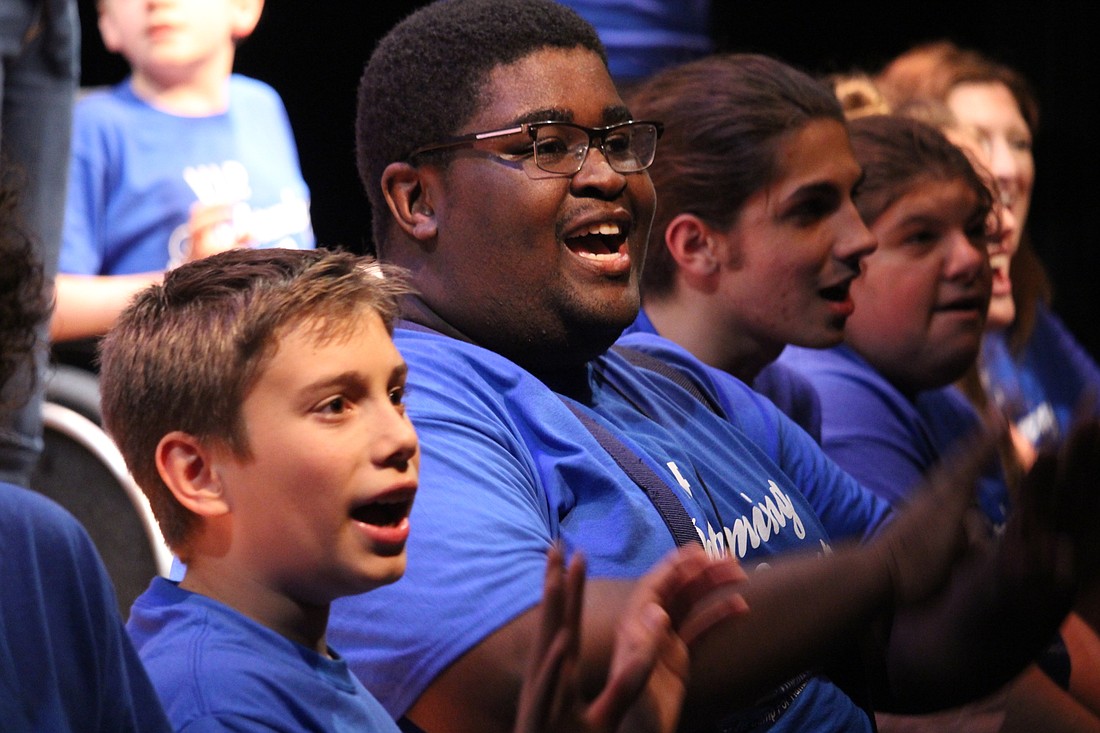- July 26, 2024
-
-
Loading

Loading

There is no shortage of eclectic summer camps in Sarasota County.
Shoot a bow and arrow? Build a robot? Learn to fly on a trapeze? All accounted for.
But Florida Studio Theatre hopes to add something new: a theater-based summer camp for children on the autism spectrum.
The Puzzle Project camp, from July 12-23, was created to inspire imagination, communication and interest in personal relationships for students ages 7-12 on the autism spectrum. Participating students will explore acting technique, movement and creative play.
Puzzle Project leader Christine Hopkins said the program got started as a passion project by FST staffers who either had family members on the autism spectrum or worked with them.
“There isn’t a ton of programs that offer what FST is offering,’’ Hopkins said. “I think that we sometimes get stuck in this idea of what summer camp should look like and what summer camp is. Everybody remembers a sleepover camp, a horse camp, a sports camp, but there’s a population of children who the traditional summer camp mold is not the right fit.”
The camp culminates in an open class for family and friends. Participants should be verbal and able to work in a collaborative environment. A recommendation from an educator is required.
Students will meet for two hours a day to focus on social and emotional skills, communication theory and self-exploration. They will participate in activities to hone fine motor skills, ensemble-building activities, friendship activities and even some arts and crafts.
“It’s just going to be a beautiful marriage between a lot of things, honestly,” Hopkins said. “You’ll get all these skills mashed into one program where kids can also experience all the activities that are involved with theater. So it’s kind of like a cake with a lot of ingredients and only the best ingredients.”
The studio also will make accommodations to better serve the campers. For example, staff will dim the lights and adjust the sound to a lower level, which can be triggering for those on the autism spectrum. They also will have items campers can fidget with and a break room if a student needs a minute.
“We just want to create a routine and a safe space,” Hopkins said. “It was just a little bit of thinking outside of the box and thinking about, ‘How can we do this in the best way?’”
The Puzzle Project builds on FST’s VIP Performing Arts Program, which offers theater classes to individuals with physical, mental, emotional and behavioral challenges. The VIP program has been offered free of charge since 1992.
Director of Education Josh Ford said the theater is proud to launch a program that will bring theater to an underserved portion of the community.
“FST’s educational philosophy is rooted in the belief that everyone is a creative being,” Ford said. “We’re proud to serve this community, giving its members the opportunity to explore their imaginations and develop interpersonal skills simultaneously.”
The program, open to eight students, is fully funded by a grant from the Charles & Margery Barancik Foundation and the Tidewell/Hospice Foundation.
Additional funding will be used to continue the theater’s Blue Butterfly Program, which was started last year to give to young children experiencing grief a dedicated space to explore and express their emotions. The camp will focus on acting and improvisation while also offering a chance for campers to share their story.
Hopkins is unsure how many participants the Puzzle Project will draw but whether it sees a full class or one child, she said she hopes the campers feel welcome and supported.
“We just want them to feel they have a place where they can grow,” she said. “Growth is hard, so giving these kids an opportunity to not only learn about themselves, but also the world around them and meet other children who they can identify will and be supported by. We want them to feel the togetherness and the confidence.”